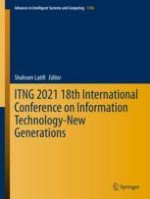2021 | OriginalPaper | Chapter
28. Use of Crowdsourcing Questionnaires to Validate the Requirements of an Application for Pet Management
Authors : Vitor S. Vidal, Marco Aurélio M. Suriani, Rodrigo A. S. Braga, Ana Carolina O. Santos, Otávio S. Silva, Roger J. Campos
Published in: ITNG 2021 18th International Conference on Information Technology-New Generations
Publisher: Springer International Publishing
Activate our intelligent search to find suitable subject content or patents.
Select sections of text to find matching patents with Artificial Intelligence. powered by
Select sections of text to find additional relevant content using AI-assisted search. powered by
